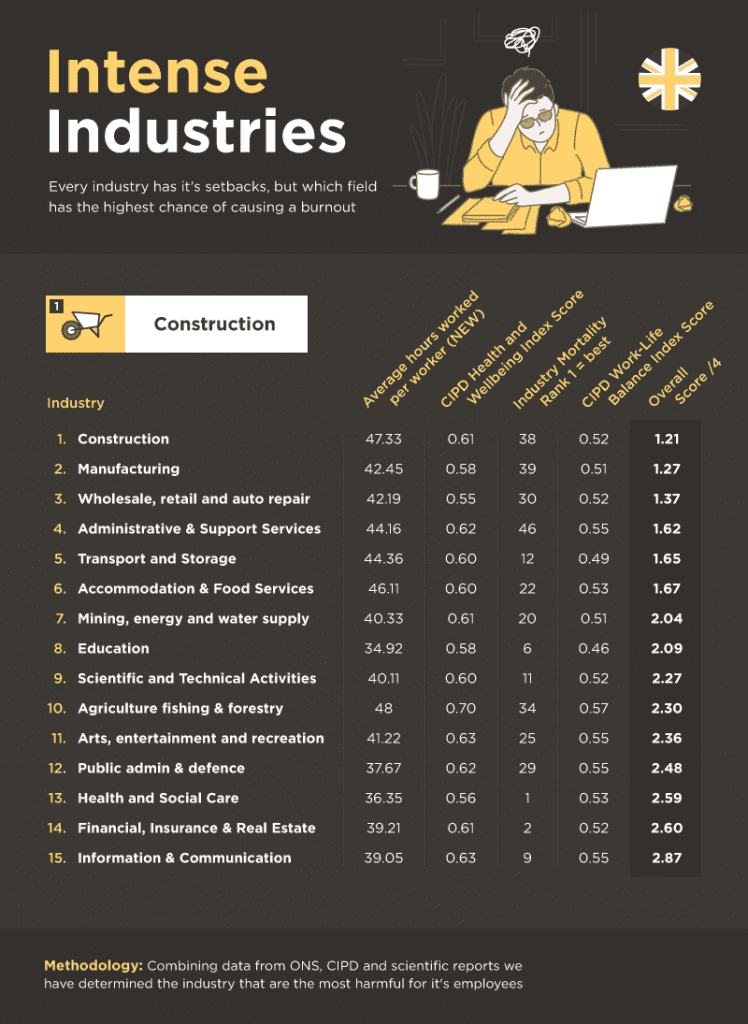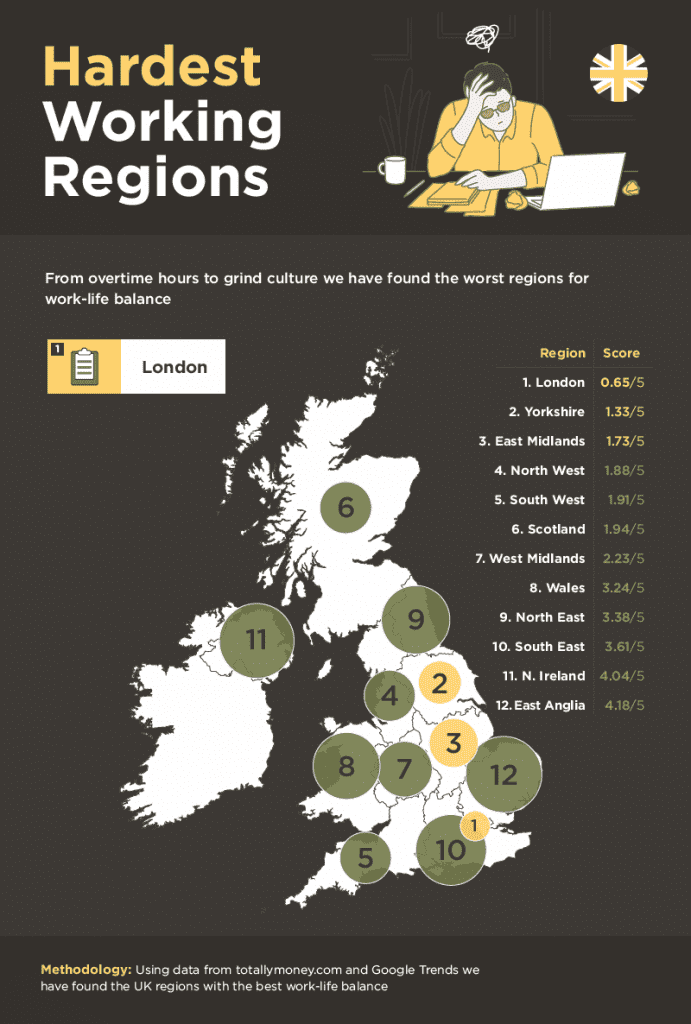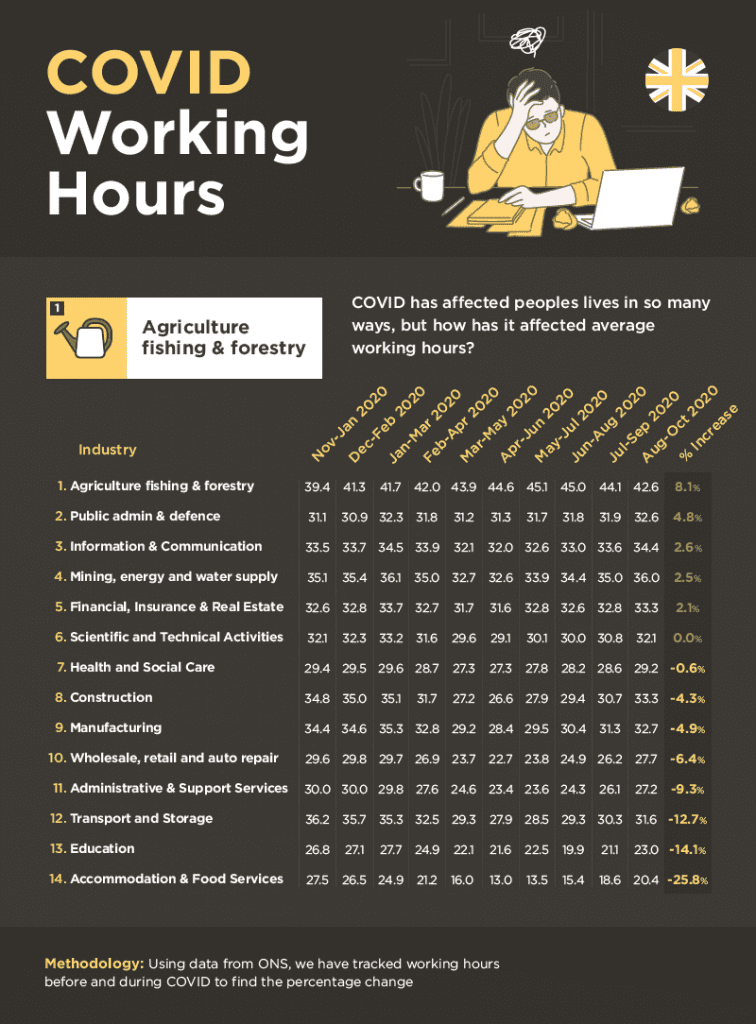According to research, the average person will spend 90,000 hours or one-third of their life at work. This figure is not as shocking as you would think as most of the week is dedicated to working.
Working is a necessity of today’s society, only a tiny percentage of the population will have never worked in their life. Whether you are the ‘work to live’ or ‘live to work type’, we can all agree that we spend a lot of time thinking or worrying about work.
In recent years there has been a rise in grind culture, one where people will often dedicate blood, sweat and tears into their career. On Instagram there over 23 million posts dedicated to #grind and over 26 million posts accompanied by #hustle. Although people who subscribe to the grind culture have an admirable work ethic, this can cause burnout.
Work burnout is when an individual physically cannot do their job anymore, this could be due to heavy work pressures, long hours or workloads. When you have long exposure to these stressful factors, burnout can be the result. Stress is also a major cause of anxiety and depression.
Full-time working averages out at 37 hours a week, in the UK law around working time regulations, ensures that you cannot work more than 48 hours a week on average, but you can opt-out of this working time limit.
In a recent survey carried out by YouGov, UK residents were asked whether they would support a government initiative that will force employees to leave work at a certain time to reduce the overworking culture. This yielded interesting results, with 38% of respondents opposing the initiative and 32% supporting it.
Grind culture doesn’t just appeal to entrepreneurs and business owners, people from all walks of life overwork themselves to the point of burnout. But which industries are bringing themselves the closest to burning out?
Intense Industries
Looking into industry working hours and quality of work-life we have determined the industries most at risk of burnout. Construction is determined to be the most hazardous industry for burnout potential, with a score of 1.21 out of 4. The tech industry has the lowest chance of burnout with Information and Communication gaining a high score of 2.87 out of 4.

High levels of stress are not just present in manual jobs, however, the reason the stress levels may be higher is due to feeling insecure about their jobs, especially during the pandemic, they can’t work from home so this can lead to extra worry about their health and finances.
Working Regions
Combining data on which regions have the highest burnout potential we reveal that London is the most at risk, with a score of 0.65 out of 5 with high numbers of overtime on average and East Anglia has been crowned the best place for a healthy work-life relationship.

COVID Effect
By tracking ONS data on average working hours before and after the pandemic, we have found that as expected, the agricultural industries have felt the stress more than the other industries with an 8.12% increase in average working hours. Also unsurprising is the 26% decrease in working hours in the accommodation and food industry due to the restrictions on the hospitality industry during the pandemic.

According to Professor Sir Cary Cooper Advisory Board Member at Delamere Health, many people have the illusion that working longer hours and combatting large workloads makes you more productive. There are no studies that show overworking will make you productive or enhance performance. It can do the opposite, consistently working long hours will bring physical and mental illness.
Burnout is a manifestation of stress, this can present itself in unhealthy food intake, increase the desire to drink alcohol and take drugs, sleep issues and aggression both at work and home.
Who is responsible for preventing Burnout, Employers or Employees?
Professor Sir Cary Cooper, Advisory Board Member at Delamere Health says:
“Stress generally is down to the individual recognising that they are working too hard or long, but it’s a two-way street. The individual needs to manage their priorities and manage their health and wellbeing. It’s also down to the employer to set manageable workloads, the boss should be contacting you as an individual if they notice overworking”.
How Can You Spot and Prevent Burnout
The key component to preventing burnout is spotting the symptoms that lead to burnout. Having someone that will help you recognise and these symptoms are very beneficial.
Spotting that you have a problem is the first step to resolving it, once you recognise that you are being negatively affected you can start to find the root of the problem and devise a plan to stop it.
Speaking to someone is incredibly important, whether it is your partner, a friend or a professional, talking about the problem will help significantly.







